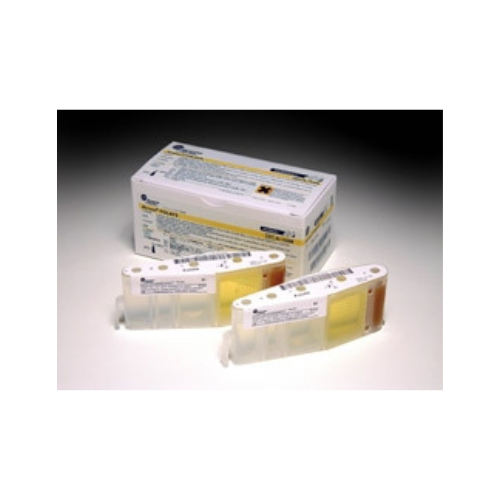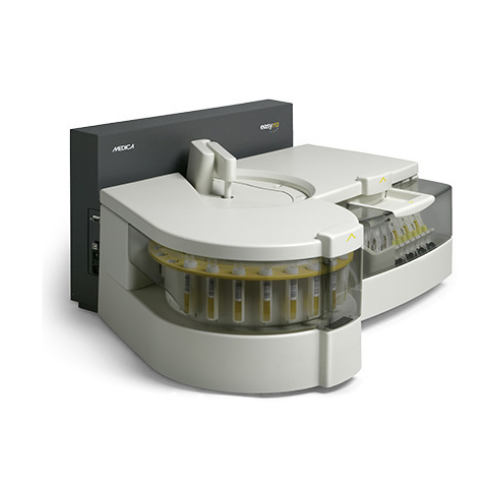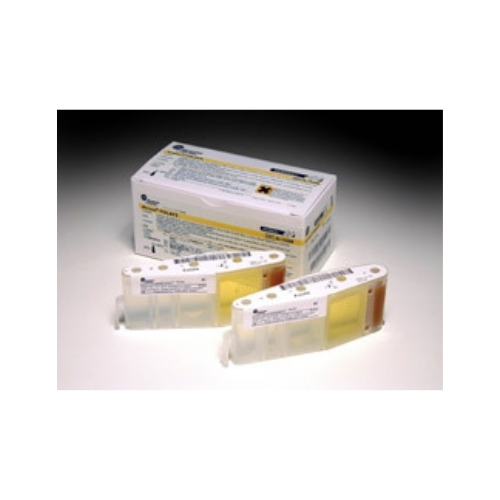For Business Use Only. Does Not Ship to Residential Addresses. For use inside an Analyzer, Sold Separately.
Beckman Coulter Access Vitamin B12 Reagent, 100 Determinations, 2 x 50 Tests
Product Code: 33000
Manufacturer: Beckman Coulter
Shipping Weight: 10.00lbs (4.54kg)
Specifications
Brand: Access®
Manufacturer: Beckman Coulter
Country of Origin: United States
Application: Reagent, Rental
For Use With: For Access 2, Unicel DXI, Synchron LXI Systems
Number of Tests: 2 X 50 Tests
Storage Requirements: Requires Refrigeration
Test Name: Vitamin B12
Test Type: General Chemistry
Intended Use
The Access Vitamin B12 assay is a paramagnetic particle, chemiluminescent immunoassay for the quantitative determination of vitamin B12 levels in human serum and plasma (heparin) using the Access Immunoassay Systems.
Summary and Explanation
Vitamin B12 is the name given to any one of a group of substances termed cobalamins. They are composed of a tetrapyrole ring surrounding a central cobalt atom and differ with respect to the side groups attached to the cobalt atom. The predominant form in serum is methylcobalamin while the predominant cellular form is 5' deoxyadenosylcobalamin. Cyanocobalamin (MW 1355) is the most stable and is used as a reference compound for measuring serum cobalamin concentrations.
Vitamin B12 is a coenzyme that is involved in two very important metabolic functions vital to normal cell growth and DNA synthesis: 1) the synthesis of methionine, and 2) the conversion of methylmalonyl CoA to succinyl CoA. Deficiency of this vitamin can lead to megaloblastic anemia and ultimately to severe neurological problems. Megaloblastic anemia is characterized by the enlargement and reduction in number of all rapidly proliferating cells of the body, including marrow cells, and is primarily a result of the decreased capacity for DNA synthesis. Because vitamin B12 and folic acid are linked by the reaction pathway for methionine synthesis, a deficiency in either will disrupt this metabolic pathway and lead to the same symptoms and medical problems. It is usually necessary to measure both vitamins in a clinical workup, with the treatment depending on which of the two is deficient.
Vitamin B12 deficiency can occur for one of several reasons. The most common cause is a defect in the secretion of intrinsic factor, resulting in inadequate vitamin B12 absorption from foods. This condition is called pernicious anemia and is most common in people over age 50. Other causes of vitamin B12 deficiency are gastrectomy, malabsorption due to surgical resections, and a variety of bacterial or inflammatory diseases affecting the small intestine. The amount of vitamin B12 absorbed is directly proportional to the length of functional intestine. Vitamin B12 deficiency due to insufficient dietary intake is rare and can occur only after years of abstinence from all animal products.
Elevated levels of vitamin B12 have been associated with pregnancy, the use of oral contraceptives and multivitamins, and in myeloproliferative diseases such as chronic granulocytic leukemia and myelomonocytic leukemia. An elevated vitamin B12 level in itself has not been known to cause clinical problems.











